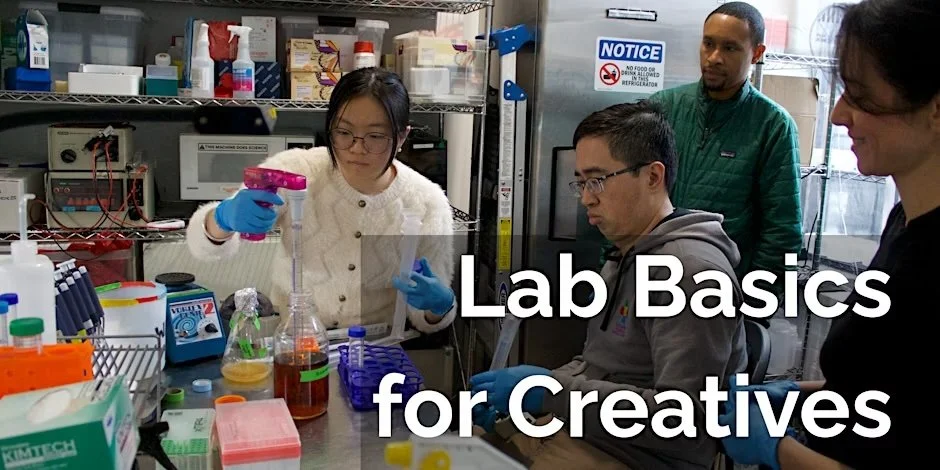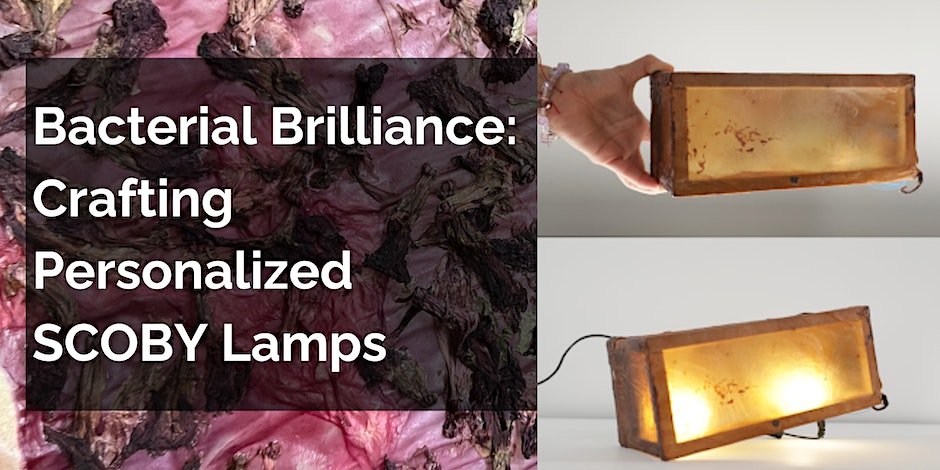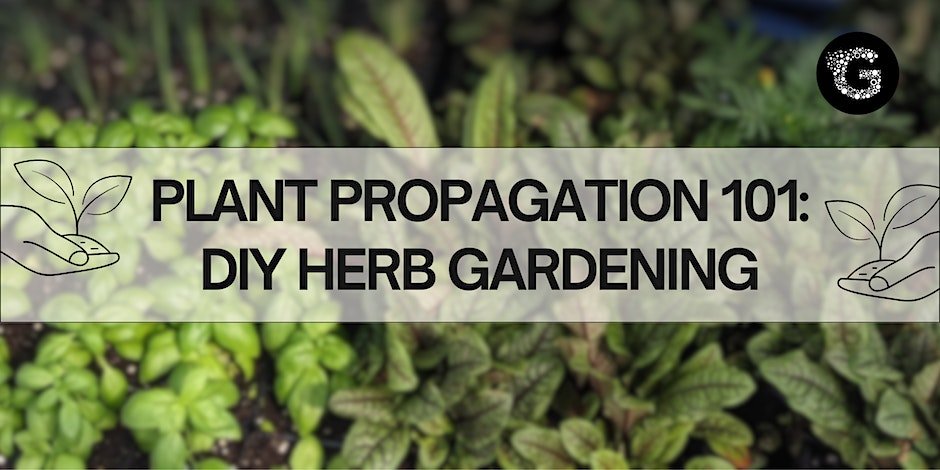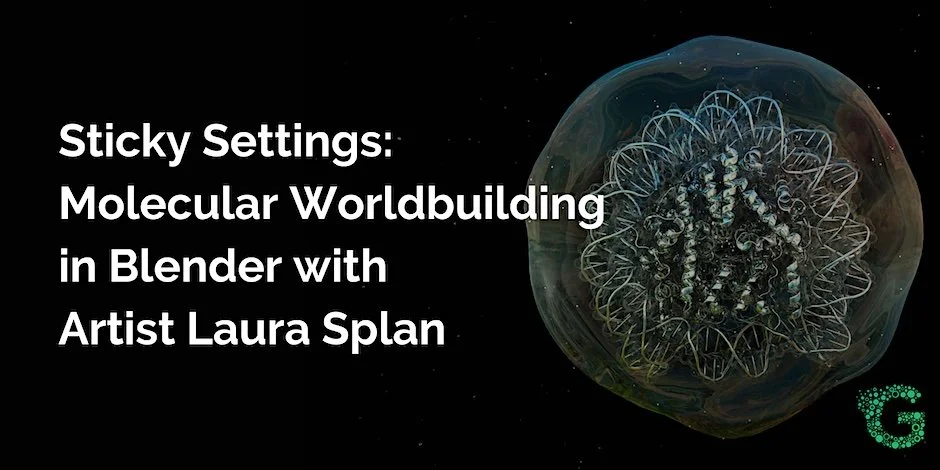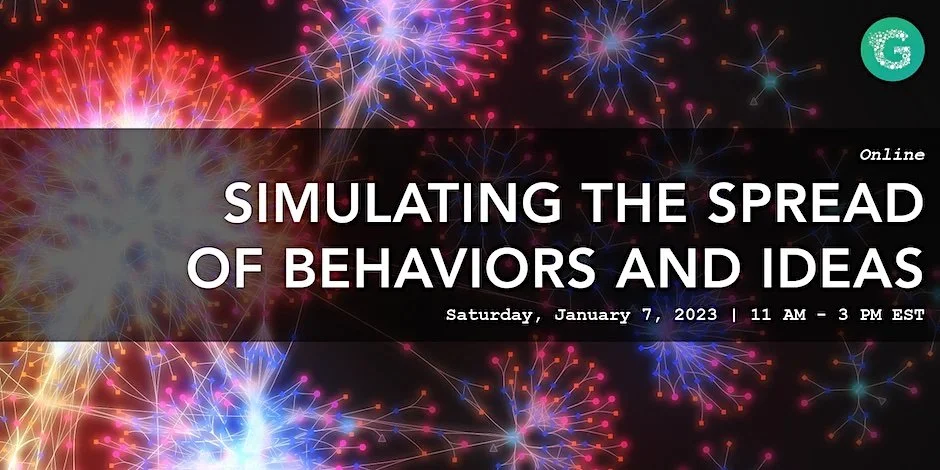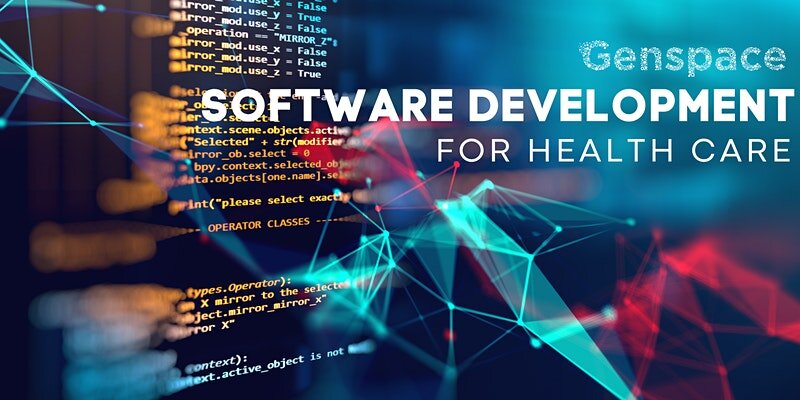At Genspace, our mission is to foster a safe and inclusive community where all people can experientially learn, boldly create, and meaningfully grow with the life sciences.
No science background is needed to take our classes or participate in our events - All ARE WELCOME
See below for upcoming classes, and consider a gift card for your loved one! Give the Gift of Science <3
UPCOMING CLASSES AND WORKSHOPS
Previous Classes
INTRO TO BIOPLASTICS
Join Genspace for a hands-on foray into the world of bioplastics. Make your own and experiment with recipes, additives, molds and more!
Kombucha Papermaking
Kombucha isn't just a tangy beverage — it's also the basis for papermaking!
Synthetic Biology 2.0: Let's Assemble Pigment Pathways
In this three-part class, we will reengineer the biosynthesis of marine pigments into the common baker's yeast.
Intro to Plant Tissue Culture: Micropropagation
Create endless clones of your favorite plant using micropropagation—a technique to grow whole plants from cells or a tiny piece of tissue.
Play Shroomscape: The Mycelium Mindset Board Game
Calling all fungi fans for a spore-tacular evening of playing Shroomscape, a mycelium mindset board game designed by the Interbeing Project.
Exploring the Microbiome
Learn and experience how to use next-generation DNA sequencing to study microbes in the world around you!
Lab Basics for Creatives
In this workshop learn the basic lab skills for getting started in the lab as a creative!
Fungi Forming: Make Custom Molds for Mycelium
Learn to make your own fungi forms with custom molds! Take your first step into the current age of biomaterials with unique mycelium pieces.
Designing with Bioluminescent Fungi
Learn how to design and create speculative futures with bioluminescent fungi to cultivate a new sense of awe in darkness.
DIY Neuroscience: Mind Reading 101
Learn and experiment with new technologies that listen to and decipher the electrical activity of your own brain cells!
Bookmaking with Bioplastics: Collage, Fuse, Weave
Join us for a hands-on workshop to construct books with bioplastics! Learn how to make your own, combining textures, patterns, and colors.
Live & Dye: Microbial Color for a Cleaner Fashion Future
Learn an alternative, sustainable, & water conscious method of textile dyeing & printing using bacteria
Papermaking with Fungi
In this workshop, participants will learn the process of fabricating paper from mushroom pulp!
Genome Editing with CRISPR-Cas9
Curious to learn more about the revolutionary CRISPR-Cas9 genome editing technology? Get hands-on experience and unpack the hype and hope!
Bacterial Biocement: Growing Living Materials
Step into the future of construction & learn how microbes can create sustainable cement and impact CO2 emissions. Join us for this virtual workshop!
SLIME MOLD BIOART
Join us to explore the beauty, intelligence, & collaborative nature of slime mold as a medium for art-making.
Synthetic Biology for Creatives
Explore how humans can collaborate with nature through synthetic biology and make your own bioart using microbes as paint!
Bioinformatics Basics: From DNA to Disease
In this workshop, you will explore diverse forms of biological big data and learn how to visualize and interpret bioinformatics approaches
BioFashion Future Lab: Fashion Forecasting & Growing Sustainable Style
In BioFashion Lab, students will learn about the world of sustainable fashion by creating their own biomaterials and unique fashion pieces.
Neuro 101: From Neurons to behavior
Learn how the brain is organized by dissecting a sheep brain and exploring online tools for visualizing neural circuits.
Multispecies Speculative Futures: Endarken NYC’s nightscapes
Join us to speculate more-than-human futures with living bioluminescence to create darker nocturnal nightscapes in NYC where all species can
Microbial Memories: A Speculative Design Workshop
What do terroir, microorganisms, and archives have in common? Join us to brainstorm creative uses of microbiomes as databases of memory.
Brain in film
Celebrate Brain Awareness Week at Genspace and dive into the fascinating intersection of neuroscience and cinema.
PAINTING WITH Bioluminescent Bacteria
Microbes are the cornerstone of the biotech revolution, but can you also consider them beautiful? Join Genspace to paint with microbes!
NOTE: This event is Family Friendly! All ages are welcome to join, ages 5-16 may attend with parental supervision.
The Artistic World of Histology
Welcome to a peek into the art and science of histology – an exploration of the microanatomy of cells!
in person
Swabbing Cheek to Cheek: Inside Personal Genetic Testing for Romance
In this special V-Day workshop, you can test your own DNA for the "cuddle gene" - do you have a version that makes you more affectionate?
Bacterial Brilliance: Crafting personalized SCOBY Lamps
Learn alternative ways of treating bacterial cellulose. Illuminate your world with the brilliance of personalized bacterial cellulose lamps.
Bioinformatics for Beginners
Learn how to access genomic data, identify species based on DNA, analyze evolutionary relationships, and investigate the genetics of health.
Synthetic Biology 101: Let's Learn How to Engineer Life
In this three-part class, participants will learn cutting edge synthetic biology using nature's favorite micro-factory - brewer’s yeast!
Introduction to Growing edible MUSHROOMS
In this workshop learn to grow edible mushrooms, from using DIY substrates in grow bags to cloning store-bought mushrooms in petri dishes.
3D Molecular Modeling: What makes some organisms glow?
In this interactive class, we will learn how fluorescent proteins work and learn how to render their beautiful structures using PyMol.
Plants & pROCESSORS: REMOTE PLANT MONITORING WITH ARDUINO
Be a lazy plant parent using sensors and Arduino! Join us to build & program a device that will alert you when your plant needs watering.
No previous coding, electronics, or science experience needed!
COLOR: BACTERIA DYEING + EXTINCTION
In this workshop, participants will explore color theory through learning to silkscreen with bacteria.
Plant Propagation 101: DIY Herb Gardening
Grow your green thumb with planting seeds and clones, and take home enough propagules for your very own windowsill herb garden.
NYMS Fun-gi Game Night: An Evening of Mycelium Entanglement
Roll the dice on an evening of fungi-first board games and mushroom crafts, where we will embody the magic and mystery of mycelium!
Introduction to single-cell rna sequencing
In this workshop, we’ll capture, sequence and analyze >1,000 single cells from an anemone to explore cell diversity and gene expression.
*Note: Because this is an advanced science workshop, all participants must have some prior lab experience and be comfortable using a micropipette. For newbies, Biohacker Boot Camp is a pre-requisite, and we recommend and at least one additional lab intensive course (e.g. CRISPR, SynBio, Microbiome). See Genspace Classes page for additional dates and details.
The Art of SynBio: Microbial Painting
2 part class
Explore how humans can collaborate with nature through synthetic biology and make your own bioart using living yeast as paint!
Tools of the Trade: Quantifying DNA [Monthly Series]
Interested in working on a new lab project at Genspace, but don’t quite know where to start? Join us for Tools of the Trade: Lab Skills, a monthly series designed to brush up on your lab skills and gain confidence working in the lab.
Sticky Settings: Molecular Worldbuilding in Blender with artist Laura Splan
Learn how to work with molecular protein models in Blender to create speculative molecular worlds exploring biological imaginaries.
mushroom identification workshop: DNA BARCODING
Explore two key methods to identify and describe mushrooms — DNA barcoding and morphology!
Simulating the Spread of Behaviors and Ideas
Learn how to use simulations to investigate how psychology affects the cultural transmission of behaviors and ideas.
Let’s Get in those genes: Computing genetic ancestry
Explore the basics of population genomics and learn how to determine global ancestry on the command line.
Tools of the Trade: Aseptic (Sterile) Plant Tissue Culture [Monthly Series]
Interested in working on a new lab project at Genspace, but don’t quite know where to start? Join us for Tools of the Trade: Lab Skills, a monthly series designed to brush up on your lab skills and gain confidence working in the lab.
Novembers’s Topic: Aseptic (Sterile) Plant Tissue Culture Technique
Tools of the Trade: Bacterial Transformation
Interested in working on a new lab project at Genspace, but don’t quite know where to start? Join us for Tools of the Trade: Lab Skills, a monthly series designed to brush up on your lab skills and gain confidence working in the lab.
October’s Topic: Learn the fundamentals of bacterial transformation.
Sunset Park Wide Open: Biology Lab as Studio
See presentations by Genspace members on creative projects made in collaboration with microbes and more—plus snacks and schmooze!
Intro to Python For Life Sciences
In this workshop, we’ll take a tour through the many uses of Python for life scientists, focusing on single-cell RNA sequencing analysis.
DIY Neuroscience: Mind Reading 101
Learn and experiment with new technologies that listen to and decipher the electrical activity of your own brain cells!
Tools of the Trade: Benchling [Monthly Series]
Interested in working on a new lab project at Genspace, but don’t quite know where to start? Join us for Tools of the Trade: Lab Skills, a monthly series designed to brush up on your lab skills and gain confidence working in the lab.
August's Topic: Benchling
DESIGNING WITH MYCELIUM
Are you interested in developing sustainable products? Make it with mycelium (fungi roots)!
Dyeing Textiles with Bacteria
Learn an alternative, sustainable, & water conscious method of textile dyeing & printing using bacteria.
Intro to Protein Folding
Learn the fundamentals of proteins and their role in health, disease, and the environment through lab experiments and computational tools.
planet microbes: Environmental Microbiology Discussion Group
Join us on the Genspace rooftop to discuss hot topics in environmental microbiology!
3D Molecular Modeling & the Central Dogma of DNA
How does a gene become a protein? Many of us are familiar with the central dogma of biology: DNA codes for mRNA, which is translated into a protein. But how does that process work at the molecular level? In this class, we will use 3D molecular modeling to investigate the incredible molecules that facilitate the decoding of our genetic material, and the creation of proteins and enzymes.
This is an interactive class where students will not only learn how these molecules work, but will also learn how to locate, load, and render their beautiful 3D molecular structures using PyMol.
tools of the trade: Lab basics [monthly series]
Interested in working on a new lab project at Genspace, but don’t quite know where to start? Join us for Tools of the Trade: Lab Skills, a monthly series designed to brush up on your lab skills and gain confidence working in the lab.
June’s Topic: Microscopy
GREEN-WOOD CEMETERY MUSHROOM WALK
Join us for an all-ages, socially-distanced, family-friendly afternoon walk through Green-Wood Cemetery in search of mushroom specimens!
Natural Dye Textiles with Food Scraps
In this hands-on workshop you will learn three different methods to naturally dye textiles with common food scraps.
TOOLS OF THE TRADE: Lab Skills [Monthly series]
Interested in working on a new lab project at Genspace, but don’t quite know where to start? Join us for Tools of the Trade: Lab Skills, a monthly series designed to brush up on your lab skills and gain confidence working in the lab.
April’s Topic: Colony PCR Screening
Bad Science: An Introduction to the Legacy of Racism in Science Research
This class seeks to explore the history of racism endemic in science, specifically science research, in the context of race in the U.S.
Software Development for Health Care
In this workshop, we will learn software development fundamentals and their application to diverse fields such as healthcare, genetics, and other medical applications.
This class is designed for people new to software development, but if you have a strong CS background and are interested in learning more about the unique constraints of designing for healthcare, please join us!
BIOMATERIALS CRASH COURSE
Step into the fascinating world of biomaterials in this four-week course. Together we'll explore working with kombucha SCOBY (symbiotic culture of bacteria and yeast), mycelium, slime mold, and bioluminescent bacteria and fungi. In addition to learning the practicalities of growing and caring for these microbe-based materials, we'll also discover their applications for art, design, textiles, sustainability and more.
TOOLS OF THE TRADE: Lab Skills [Monthly series]
Interested in working on a new lab project at Genspace, but don’t quite know where to start? Join us for Tools of the Trade: Lab Skills, a monthly series designed to brush up on your lab skills and gain confidence working in the lab. Perfect for people who have taken a course or two with us and are thinking of joining the Genspace lab as members to launch their own scientific, bioart, or biodesign project.
March’s Topic: Gel Electophoresis
Introduction to Biomimicry: Learning From Nature’s Genius
Discover the power of nature’s genius and how principles found in nature can be used to solve the most pressing challenges of our time.
Understanding Neurodegenerative Diseases with Bioinformatics
Learn how to perform genome-wide association studies for neurodegenerative diseases, plot data, and explore genetic risk scores (PRS).
TOOLS OF THE TRADE: Lab Skills [Monthly series]
Interested in working on a new lab project at Genspace, but don’t quite know where to start? Join us for Tools of the Trade: Lab Skills, a monthly series designed to brush up on your lab skills and gain confidence working in the lab. Perfect for people who have taken a course or two with us and are thinking of joining the Genspace lab as members to launch their own scientific, bioart, or biodesign project.
February’s Topic: Polymerase Chain Reaction (PCR)
Synthetic Biology for Creatives
Explore how humans can collaborate with nature through synthetic biology and get creative with your new microbial collaborators!
TOOLS OF THE TRADE: Lab Skills [Monthly series]
Interested in working on a new lab project at Genspace, but don’t quite know where to start? Join us for Tools of the Trade: Lab Skills, a monthly series designed to brush up on your lab skills and gain confidence working in the lab. Perfect for people who have taken a course or two with us and are thinking of joining the Genspace lab as members to launch their own scientific, bioart, or biodesign project.
January’s Topic: Growing Bacteria
Fabricating with Fungi
Learn to work with fungi at home to create materials! We’ll explore applications of fungal biomaterials and create our own myco-composites.
3D Printing for Biofabrication
Mold with mycelium. Grow your own furniture. Biofabricated fashion. We’ve heard these ideas in the biodesign world, but how do we actually do it ourselves? One critical step is making the right structures and shapes for your mycelium (i.e. the vegetative “roots” of mushrooms) to grow in. And we can do that with 3D printing.
Cultured: Yogurt, Fermentation, and Alternative Archives
This session is part fermentation workshop, part discussion of the many ways we preserve moments in time and place, and part preview of emerging technologies that will enable new forms of archiving. If nothing else, you will learn how to make yogurt at home and have a batch ready the next day.
Viral sequence analysis using covid-19
Join us to learn how to access genomic data, analyze viral sequence data, & investigate the genetics of health, all with the COVID-19 virus.
Special thanks to the HudsonAlpha Institute for Biotechnology for the curricular resources.
how to pin an insect
Did this year’s Brood X emergence get your attention? Have you been curious about the critters in your backyard or neighborhood? The pests in your NYC apartment? Join us to learn more about the most diverse life forms on our planet: insects! You’ll get your very own insect pinning kit to take home, along with your pinned butterfly specimens!
Molecular Biology 101
Interested in learning more about how genes work, but don’t know where to start? This class will cover the basics of molecular biology. In this class, you’ll have the opportunity to have all your questions answered about how genes are maintained and expressed on a molecular level. You’ll also learn how these molecules are examined and manipulated in the lab.
Session 1: Introduction and Macromolecules
Session 2: Genome Structure, Integrity
Session 3: Gene Expression
Session 4: Gene Expression II
Session 5: Gene Expression III
Session 6: Regulation of Gene Expression
Session 7: Gene Regulation & Model Organisms
Session 8: Hot Topics
Guided Nature Walk at Prospect Park
Explore the flora and fauna of Brooklyn! Join us on this nature walk to learn to identify the living organisms of Prospect Park.
Are you curious about the nature in your neighborhood? Have you ever heard a bird singing from your window and wondered what it was? Do you puzzle over the term “invasive species”? We'll answer your questions about what is living around us as we identify the plants and animals living in your own backyard!
Redesigning Plants with CRISPR
In this workshop, we’ll explore the origins of plant breeding and our evolving relationship with plants. We’ll cover modern-day plant breeding, and the power of CRISPR to edit genes in plants. Then, we’ll learn how to design a CRISPR guide to edit a plant gene in maize, and what technical and ethical considerations are necessary when editing a gene in plants. You will be able to design a CRISPR guide for an agriculturally important gene of your choice, based on a list of known genes that impact maize yield and color. You’ll also have the opportunity to carry out a traditional breeding experiment from home with the rainbow glass gem corn. We’ll wrap up with a discussion about the pressing need to modify plants as we encounter an increasing global population, changing climate, and decreased natural resources.
Software:
MaizeGDB website
CRISPR-P webtool
Ape plasmid editor (Please be sure download this program before the start of the workshop)
Seeing Science: 3D Molecular Modeling with Viruses & Vaccines
As the COVID vaccination campaign gains momentum, words like mRNA, lipid nanoparticles, antibodies, and spike proteins, have entered our vernacular. Never before has biochemistry been at the forefront of our everyday lives. In this course, we’ll make these technical words concrete by exploring the biochemistry of a COVID vaccine. We will view and explore these biochemical structures at high resolution using vivid 3D computer renderings with the Pymol program. Both advanced and novice students will gain a better understanding about the virus and vaccine strategies through these powerful modeling tools.
During the workshop, you’ll learn about the most important components of the virus and the novel mRNA-based vaccine technology through a highly visual presentation and discussion. You’ll learn how to search the Protein Data Bank for relevant and interesting protein structures that are central to how the vaccine works. Then, we’ll learn how to render these structures using a free molecular modeling software called PyMol. The skills learned in the workshop will transfer many other biomedical fields giving you tools for future scientific inquiry.
TOOLS OF THE TRADE: SOIL TESTING AND ANALYSIS
April’s Topic: Soil Testing & Analysis
What's the science behind thriving plants? Have you tried out your green thumb at home during the pandemic? Are you a new plant parent or an expert? See what it takes to get your plants thriving and healthy just by testing its soil!
In this lab, you’ll learn how to sample your soil, prepare it for testing, and complete 4 different types of analytical chemistry tests to determine what the pH, nitrogen, potassium and phosphorus levels of your soil are. The chemistry portion of the lab tests are essential and important as you measure, add chemicals, mix and add the results together. We'll use this soil testing kit as a starter tool for studying the effects of soil nutrients on plant growth or to overall improve your garden.
Tools of the Trade: Bacteria & Gram Staining
February’s Topic: Bacteria & Gram Staining
Bacterial Gram staining is a frequent lab diagnostic test used by scientists to make bacteria more visible under a microscope and to help identify the specimen. In this workshop, we’ll take you through a basic overview of bacteria morphology and proper aseptic techniques used in a lab setting. You’ll also learn about bacteria commonly found in the home, those that can cause infection, and a brief history of antisepsis.
tools of the trade: Lab basics [monthly series]
September’s Topic: Molecular Cloning
Learn how scientists design and express whichever genes they chose using molecular biology visualization software SnapGene! Before we jump into the software, we’ll review the basics of DNA, molecular cloning, and restriction enzymes. By the end of the workshop, you’ll be able to (virtually) design a new genetically engineered organism in SnapGene.
tools of the trade: Lab basics [monthly series]
June’s Topic: DIY Disinfectants
Can’t find hand sanitizer or disinfectant wipes? Learn how to make your own with this month’s Tools of the Trade on DIY Disinfectants. We will learn a bit about disinfectants and soaps and learn how they keep bacteria and viruses away. In our time together, we will go over how to make a few common cleaners when the supply is low. We will be making a disinfectant spray, hand sanitizer, and 2 kinds of disinfectant wipes.
Introduction to Vaccine Science with Dr. Steve Kaminsky
What does it take to develop a vaccine? How does a vaccine actually work?
In this interactive lecture, Steve Kaminsky, Ph.D., Professor of Research in Genetic Medicine and an Associate Director of the Belfer Gene Therapy Core Facility at Weill Cornell Medicine, will provide an overview of the vaccine development process and a brief primer on immunology science relevant to vaccine function.
Mining human genome data with r
Genetic sequencing is cheaper than ever and publicly available genomics datasets are everywhere. But how do we make sense of the petabytes of A’s, T’s, C’s, and G’s? Enter...bioinformatics!
In this two-part course, we'll learn how to write code in the statistical programming language R to access publicly available data from The Cancer Genome Atlas (TCGA), a massive NIH-funded project to profile the genetics of thousands of patients with 30 different common cancer types. Then, we'll discuss different sequencing technologies, consider how different types of data allow us to answer different questions, and download RNA-sequencing data from TCGA. Finally, we'll apply what we've learned to explore the genetics of glioblastoma (a deadly brain cancer), using our own code to brainstorm how researchers might develop next-generation personalized targeted medical strategies.
Neurohacking 201: Machine Learning
Machine learning has led to impressive advances in a range of technical and scientific fields, including human neuroimaging with MRI. In this day-long course, we’ll teach you how to use Nilearn and Scikit Learn, a popular Python package for machine learning and analyzing neuroimaging data, to examine the human brain and its myriad functions.
We’ll focus on the brain’s visual and attentional systems, and discuss how these systems work in conjunction with other parts of the brain to produce a coherent representation of the world around us. We’ll also explore a range of popular techniques in advanced neuroimaging, with a particular focus on using multi-voxel pattern analysis (MVPA) to decode patterns of brain activity related to visual and attention systems.
This course builds off of content presented in our Neurohacking 101 course and assumes some familiarity with Python programming. Please contact info@genspace.org with any questions regarding course eligibility.
tools of the trade: Lab basics [monthly series]
February’s Topic: Microscopy
In this session, we will teach you how to use Genspace’s microscopes. Bring in your favorite environmental sample or just something you want to see up close! We’ll teach you how to prepare slides and find what you’re looking for under different magnifications and how to avoid those pesky eyelashes. Plug in our handy camera to capture what you see!
Coloring Textiles with Bugs: Old [Cochineal] and New [Bacteria]
In this hands-on workshop, you will learn both the history and the science of coloring textiles with organisms using historical techniques and new scientific developments. Explore the long tradition of dyeing cloth brilliant shades of red with cochineal insects. Then, discover new cutting-edge techniques of printing textiles with colorful microbes. We will delve into the world of sustainable natural dyes and create artful textile collages.
Mushroom Barcoding Workshop
Using fungal tissue samples from mushrooms gathered during the City Nature Challenge, we will overview and perform DNA extraction, isolation, amplification, verification, and sequencing. We will go over all the steps involved in extracting DNA from our fungal samples, and while our samples are running we will learn how to use bioinformatics to build phylogenetic trees from the samples that we've collected to contribute to online research platforms.
How to run automated experiments with opentrons
Never used a liquid handling robot before, but tired of pipetting for up to an hour or more at a time? In this 6-hour class, you will learn how to set-up and run the Opentrons pipetting robot, write Python programming scripts for the robot, and share protocols with the worldwide Opentrons community.
intro to plant genetics: from genotype to phenotype
In this class we will use mustard plants to explore how changes in the sequence of DNA can lead to changes in proteins and physical characteristics. You will use DNA purification, polymerase chain reaction, DNA sequencing and bioinformatics to compare two plants with different genes and learn about how cells use the information in our genes to specify physical traits.
Make Your Own Ghost Heart
Join Genspace for a two-day, hands-on tissue engineering workshop to create “ghost heart”. We will be using decellularization, a tissue engineering technique that strips all of the cells from a donor organ leaving behind nothing but a scaffold of connective tissue called a “ghost organ,” named for its pale and ghostly appearance. You will have a chance to handle a real heart and learn how it works!








